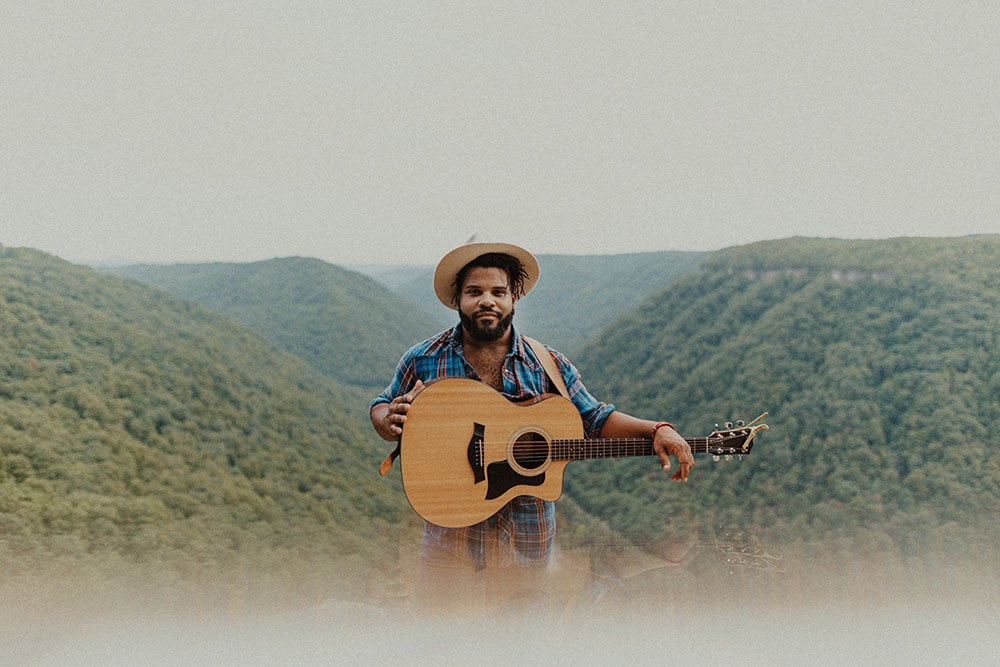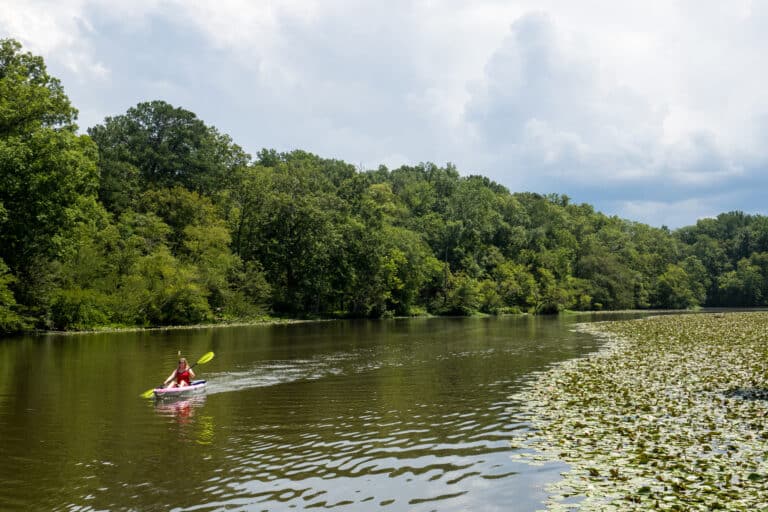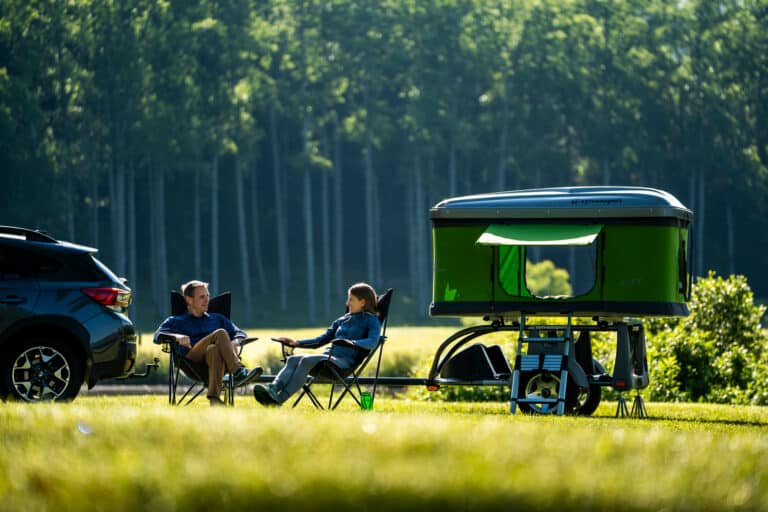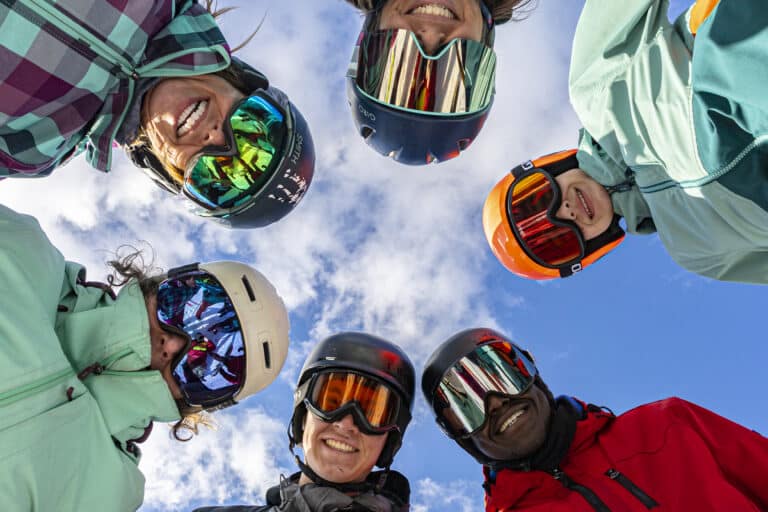Musicians of the Blue Ridge look back on a year without in-person performances as the promise of a return to live shows and festivals grows.
The sound check was one of the last items on the list before the doors opened to the Grey Eagle and Fireside Collective hit the stage for their CD release party. The Asheville-based quintet had just finished dialing in everything for the show when North Carolina Governor Roy Cooper issued an executive order banning gatherings of more than 100 people.
Although they had spent months putting “Elements” together, the band made the difficult decision to cancel the night’s event. It was March 14, 2020 and there were 23 confirmed cases of COVID-19 in the state. Jesse Iaquinto, a mandolinist and vocalist for the band, told everyone not to worry about it; they’d be back at it by the end of April. “I stayed optimistic for a while,” he said. “That changed after many months.”
Talk to any musician about 2020 and you’ll hear tales of canceled tours, delayed records, loss of income, and a complete lifestyle change.
“The biggest challenge of this whole thing has been just not knowing where we’re going to be in three months,” Iaquinto said. “For us, we typically plan six months to a year in advance. I think a lot of bands are just sitting and waiting to see what happens.”
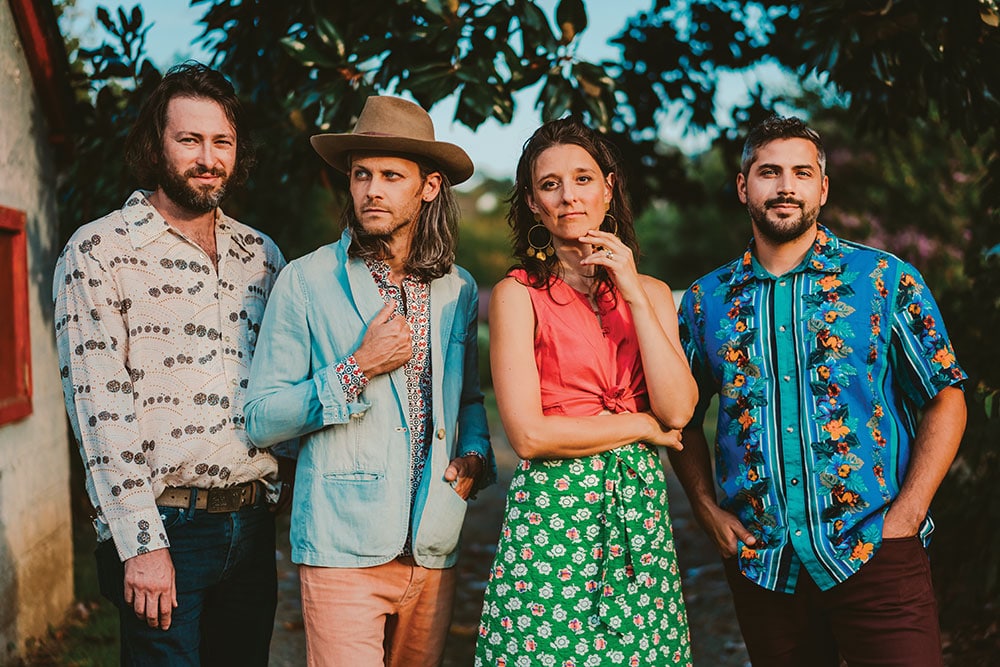
Wish You Were Here On Stage
Nowadays, with most music streaming online and album sales tough to come by, touring is the bread and butter for many bands. As the main source of income and main avenue for promoting an album, a canceled show can hit hard. Chamomile and Whiskey spent 2019 recording their third album, putting a lot of time, money, and effort into the process and preparing for a big year on the road. Soon after their annual St. Patrick’s Day show at Virginia’s Jefferson Theater was canceled, everything else followed. “It was a 60 to 0 kind of thing,” said founding member, guitarist, and songwriter Koda Kerl. “Suddenly everything’s gone.”
The first few weeks were hard as the band adapted to the new situation. But as the pandemic went on, they stayed busy on the creative side of things.
“It’s probably been one of the most fruitful periods for us as a band and me as a writer,” Kerl said. “When you’re on tour a lot and you’ve got other responsibilities, you get back home and you just feel like laying around.” After more than a year at home, he already has the songs for the band’s next record as they start to look forward.
Kerl also spent the unexpected down time renovating a cabin his brother built into a studio. “Right now, I’m up in the woods in Nelson County digging an outhouse,” he said. “I don’t think that ever would have happened if I didn’t have this big pause. It certainly helps with my mental health and keeping my head straight a little bit throughout all this.”
Still, the band is eager to get back on stage. “It’s such a unique profession where your ego is so tied into the way you make a living,” Kerl said. “We all love to walk out to a bunch of fans cheering for us or calling for an encore. It’s the best feeling in the world…If you have a chance to play for people who want to hear you, hear your art, it’s a lucky thing and you should really cherish it.”
Other artists echoed that sentiment. As the lead vocalist of Joslyn & The Sweet Compression, a seven-piece R&B band from Kentucky, Joslyn knows how to get crowds going. But performing live isn’t just something she does for the fans; it’s a space where she gets to shine as a musician. “You don’t realize the small things you might take for granted till you can’t do it,” Joslyn said. “You might not have noticed how much you really do need that outlet and energy. For me, it’s like plugging into a charger to get refueled.”
With that release gone, she started painting and relearning how to do scales on her keyboard. “I just found other ways to have an outlet artistically,” Joslyn said. The band was able to get into the studio and record an album, helping them feel like they were working towards something in a year when music felt frozen in time.
Video Killed the Radio Star But Saved 2020
When tours and shows were canceled, many artists quickly pivoted to virtual shows as a way to connect with fans and earn some money. Some were all in, like Suz Slezak and David Wax of David Wax Museum, who were doing three online shows a week the first few months of the pandemic. Although they’ve now scaled it down to one show a week, the duo found the move to virtual felt like a natural step. “It was like the only thing left,” Slezak said. “It felt like a lifeline to our fans.”
They also started a Patreon, a membership program that gives fans access to additional content. “We’ve toured with our kids; they’ve seen our family grow; we’ve played in people’s homes,” Slezak said. “The Patreon has felt like this natural extension of this community that we’ve built.” Depending on the level of membership, fans can hear new music first, access Zoom hangouts on topics like mental health and private online shows, and listen to early drafts of old songs.
For the first time in years, Slezak and Wax are settled in a home with their children, enjoying sleeping in the same bed every night. “When you’re in the current and it’s fast moving, you just swim and you keep up,” Slezak said. “As soon as that stops, there’s just such relief that I didn’t even know I would have. If you’re offered a gig, you say yes even if it means flying all night to get there and then flying back the next morning.”
Having gotten into a rhythm playing their live shows from home, Slezak said she doesn’t think they’ll go back to the same intense touring schedule they’ve been keeping for the last 10 years.
“Now we’ve seen what home can be and how creative home can be,” she said. “We never had that chance before. I feel committed to having a different balance.”
Other artists, like Devon Gilfillian, shied away from the live streams because it couldn’t compare to a live performance. “People want music badly, but watching it through a screen, for me, is the last thing I really want to do,” he said. “Unless you are doing something insane in this performance. If you’re going to be on TV, show me some movie magic.” Instead, Gilfillian focused on the creation side of music. Using programs like GarageBand and Logic, he started learning how to produce his own music, taking ownership of all the sounds that go into a track.
He also decided to re-record Marvin Gaye’s essential album, “What’s Going On,” in the wake of George Floyd’s death and seeing the role instruments played at subsequent protests. “The fact that no one actually listens killed me, put a knife in my chest,” he said. “I was weeping and angry. In that moment, I decided that I wanted to cover all of it. Listening to that album, for me, it was therapy. It was also insane to me how prophetic the words were and are, and how 50 years later they mean so much more.”
Collaborating with artists like Jasmine Cephas Jones, Kyshona Armstrong, and Joy Oladokun to record every track, 100 percent of proceeds from the album were donated to the Equity Alliance in Tennessee to fight voter suppression. One of the few virtual shows Gilfillian did in 2020 was his “There’s An Election Going On” live stream concert with proceeds also benefiting the advocacy group. With performances by Grace Potter, the War and Treaty, and Jason Isbell, among others, it was a full-scale production. “The season of no live music is coming to an end soon, and I think that’ll make it even sweeter when we get back on stage,” Gilfillian said.
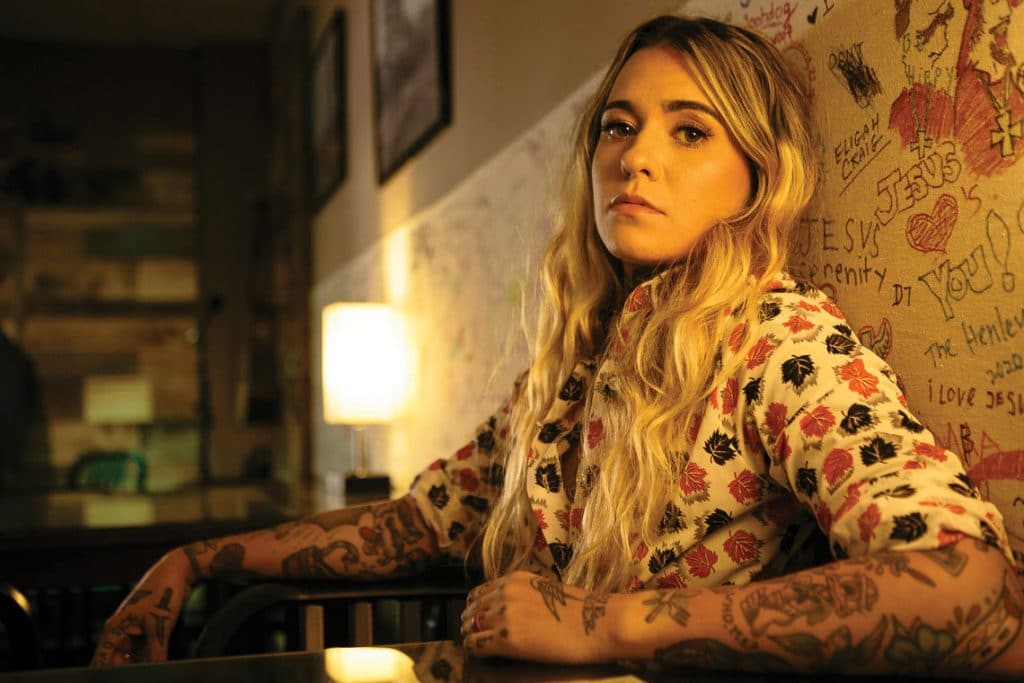
Getting By With a Little Help From My Friends
Learning how to deal with loss, especially on a global scale, doesn’t come easy. Learning how to adapt and reframe your mindset is a difficult process. Many musicians talked about finding new outlets or professional help to work on those skills.
Morgan Wade had wanted to try therapy before the pandemic but felt it wasn’t a possibility since she was always on the road. Although in-person sessions weren’t happening, she started seeing a therapist virtually. “That has helped me a lot,” she said. “I think we could all benefit from having somebody outside of our family or friend circle to be able to speak with and relay those things.”
Wade also spent more time outside, exploring the area around her home in southwest Virginia. “I didn’t realize how lucky I am,” she said.
“I’m living out in the country where I’m able to go outside and walk. So I would find the beauty in the small things that normally I wouldn’t pay any attention to. I could have sat there mad I couldn’t go do other stuff, but I had more than what other people had in different areas.”
For Lydia Luce, last year started with a tornado that tore through her home city of Nashville, Tenn., at the beginning of March. Still reeling from that experience, Luce, like the rest of the country, soon found herself in lockdown. With her sophomore album release delayed, she found comfort in her friends and community, as well as talking about her anxieties out loud. “I’ve only really been doing therapy consistently for the last two years, but that’s been something that gets me through everything,” Luce said. “From week to week, things might change but having that consistent check-in is really great.”
As many others discovered, she also found healing in getting to do things she couldn’t with such a busy schedule. “My partner and I started a garden, and that got us outside with summer,” Luce said. “We got a puppy, and that really helped with the joy part.” Safely leaving the house to hike and spend time outside to reflect and turn everything off was also important.
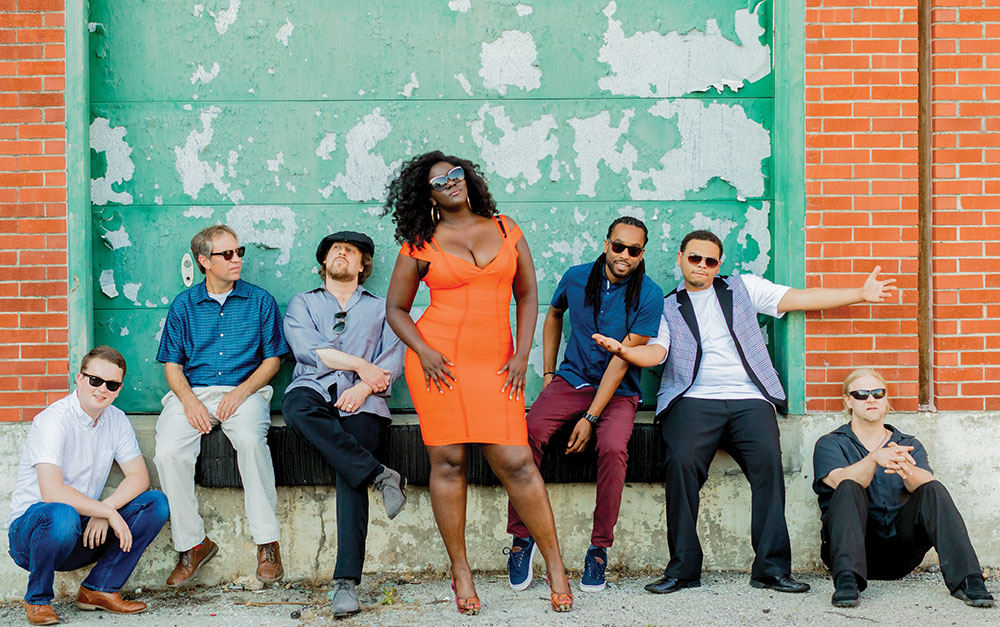
A Change Is Gonna Come to the Music Industry
So what do artists think the music industry will look like as they start booking live shows again? While large, indoor gatherings will probably be one of the last things to open back up, they are seeing more festival producers and venue managers thinking about innovative ways to put on in-person events.
“A lot of venues are converting to outdoor shows, A) by necessity in order to run shows and B) in some cases, they’re going to continue to do this in the summer, COVID or no COVID, because they figured out their cap doubles,” said Marty Charters, guitarist and songwriter for Joslyn & The Sweet Compression. “We fit 300 people inside; we can fit 750 people outside. So once they make a few structural changes, they could do this.” More room outside to sell more tickets could help some venues recoup part of their losses from the past year.
Still, not every venue is able to make that transition easily with many not surviving the financial toll COVID-19 took on their bottom line. “Some will be gone for good; others have held on but will be struggling,” Charters said. “There’s definitely a new outlook with regard to the financial deals. Venues, and even festivals who lost a lot of money, blown sponsors, and advertising money wasted, it’s all scaled down.”
This is something that could have a trickle-down effect on musicians and bands looking to book dates. “When a venue or festival has taken a beating and are lucky to be around, the deals they’re making with you now are significantly less artist-friendly than they used to be,” Charters said. “You want to be upset with the toll it’s taken on you, yet you really can’t argue with them because they’ve taken a beating.” In many cases, he said the band has had to settle for deals that weren’t nearly as attractive as they used to be because everyone is trying to survive.
Others, like folk artist Scott T. Smith, hope to see a transformation in how the music industry operates. “If having COVID and being in COVID Land has taught me anything, it’s that none of what we were doing before was working,” Smith said. “We were consuming so much at such a high rate. We were gathering and spending so much money. So many raw materials were going into making these tours happen.” Instead, he says, it’s time to think about the industry from a sustainability perspective and how artists can move forward with a responsibility to this earth.
One place Smith suggested starting with is merch. “Going forward, when artists release projects, there’s no need to make something until it’s ordered,” he said. “Make merch that matters. Make t-shirts out of recycled material. Work with companies that are doing small batch, made-to-order merchandise.”
This is something he hopes all musicians will start thinking about critically as they think about touring again. “To ignore the wake-up call that COVID has been for us as a society is to practice denial, is to practice insanity,” Smith said. “At this point, we’re crazy to think that we can keep doing it the way we were before and it’s going to be okay.”
Check out BlueRidgeOutdoors.com throughout the month of May to read more in-depth interviews with each of the artists featured here. You can also hear new music from each artist on our Spotify playlist, The Year That Music Persevered.
Cover photo: Scott T. Smith. Photo by Braiden Maddox
